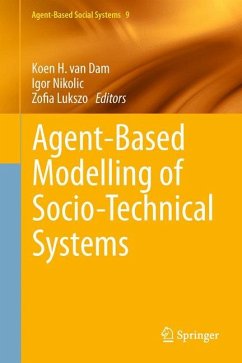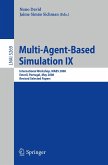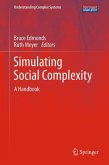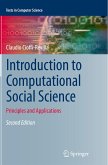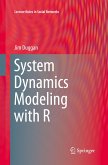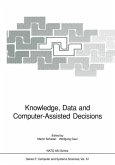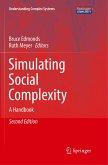Decision makers in large scale interconnected network systems require simulation models for decision support. The behaviour of these systems is determined by many actors, situated in a dynamic, multi-actor, multi-objective and multi-level environment. How can such systems be modelled and how can the socio-technical complexity be captured? Agent-based modelling is a proven approach to handle this challenge.
This book provides a practical introduction to agent-based modelling of socio-technical systems, based on a methodology that has been developed at Delft University of Technology and which has been deployed in a large number of case studies. The book consists of two parts: the first presents the background, theory and methodology as well as practical guidelines and procedures for building models. In the second part this theory is applied to a number of case studies, where for each model the development steps are presented extensively, preparing the reader for creating own models.
This book provides a practical introduction to agent-based modelling of socio-technical systems, based on a methodology that has been developed at Delft University of Technology and which has been deployed in a large number of case studies. The book consists of two parts: the first presents the background, theory and methodology as well as practical guidelines and procedures for building models. In the second part this theory is applied to a number of case studies, where for each model the development steps are presented extensively, preparing the reader for creating own models.
From the reviews:
"Six case studies are presented using the methodology. This is ideal, especially for students to see the process applied to different models in a coherent manner. Graduate students would be able to begin designing a model after reading. ... this is a very useful book for those developing (and teaching) agent-based modelling of socio-technical systems and is a step towards developing more useful models for decision-makers." (Nicole Ronald, Journal of Artificial Societies and Social Simulation, April, 2013)
"Six case studies are presented using the methodology. This is ideal, especially for students to see the process applied to different models in a coherent manner. Graduate students would be able to begin designing a model after reading. ... this is a very useful book for those developing (and teaching) agent-based modelling of socio-technical systems and is a step towards developing more useful models for decision-makers." (Nicole Ronald, Journal of Artificial Societies and Social Simulation, April, 2013)

